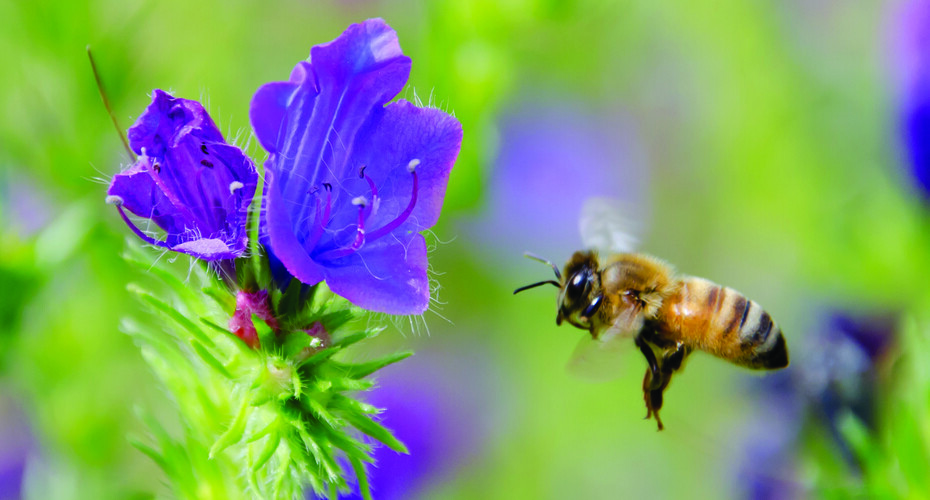Working with Cornwall’s farmers to enhance farmland pollination and pollinator conservation

University of Exeter researchers are working with Cornwall’s land owners, managers and advisors to enhance farmland pollination and pollinator conservation.
Bees are important pollinators of crops and wild flowers and, because they are totally reliant on nectar and pollen, they provide a proxy for the wider community of insect flower visitors that pollinate plants. There are many current initiatives aimed at improving the landscape to promote pollinator biodiversity, a key aim of the UK’s National Pollinator Strategy. But how do land managers predict which initiatives are likely to be most successful and thus make best use of often limited resources?
Scientists at the University of Exeter’s Penryn Campus have collaborated with Cornwall’s land owners, managers and advisors to come up with the solution - a free, easy to use computer program of bee health and survival called BEE-STEWARD.
Professor Juliet Osborne and her research group at the Environment and Sustainability Institute have recently won the prestigious Innovator of the Year 2017 award for Social Impact due to the real world benefits of their computer models of bee colony dynamics. They have teamed up with partners including Natural England, the NFU (National Farmers Union), South Devon AONB (Area of Outstanding Natural Beauty) and Cornwall AONB who are professionals in farming and environmentally sensitive land management. They are working together to transform Juliet’s latest computer models of bee colony dynamics into computer software that can help decision making that benefit farmers and pollinators.
"BEE-STEWARD software can be used to visualise how pollinator-friendly land management options might affect bee survival in any chosen landscape, thus aiding effective decision-making and resource allocation, and increasing the likelihood of land being managed to boost pollinators."
Professor Juliet Osborne

Dr. Grace Twiston-Davies has been working closely with Cornwall AONB on their joint campaign “Farms for AONBees” specifically targeting Cornwall’s finest landscapes to test the bee models with farmers on the ground, helping them to make pollinator friendly, business savvy management decisions.
Colette Beckham, Cornwall AONB Partnership Manager says: “Our pollinators are in grave danger. It is critical that we better understand how management of our farmland affects these vital insects without which our agricultural economy could not survive. This research will help farmers make more informed choices to help bees thrive in our landscapes”.
Principle researchers
Professor Juliet Osborne and Dr Grace Twiston-Davies
Grants and funding
This project received an Innovation Internship Fellowship and an Innovation grant from the Natural Environment Research Council.



